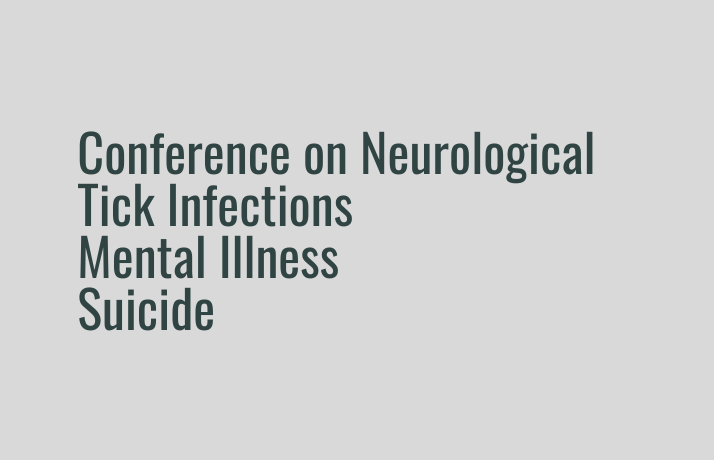29. Sep 2017
Conference on Neurological Tick Infections
This educational summit is a 1-1/2 day program for physicians and nurses on the diagnosis and treatment of neurological tick infections ( i.e.: Borellia Burdorferi, Bartonella etc.) which lead to cognitive impairments, mental illness and ideations of suicide/violence. The general public is also welcome to attend. Keynote speaker: Congressional Candidate Peter Jacob - LSW

Conference on Neurological Tick Infections
This educational summit is a 1-1/2 day program for physicians and nurses on the diagnosis and treatment of neurological tick infections ( i.e.: Borellia Burdorferi, Bartonella etc.) which lead to cognitive impairments, mental illness and ideations of suicide/violence. The general public is also welcome to attend. Keynote speaker: Congressional Candidate Peter Jacob - LSW
Course learning obectives:
- Identify neurological symptoms of undiagnosed infections.
- Articulate reasons for infection persistence following standard treatment.
- Recognize the link between infections and aggressiveness/suicide.
- Idenitfy best treatment options.
- Provide patients an explanation of suicidal/violent tendencies in medical and scientific terms
- Recognize patients ‘at risk’ for suicide and discuss preventative strategies and support services.
- Articulate the shortcomings of current serological testing for lyme and co-infections.
- Discuss alternative diagnostic options.
- Perform a clinical diagnosis of tick infections.
Amid the growing epidemic of Lyme Disease and other tick infections, patients are falling through the “diagnostic” cracks and progressing into late stage infections. Although the CDC and IDSA encourage medical practitioners to follow the two-tiered ELISA /Westen Blot screening protocol, this methodology has an average sensitivity of 56%.
Many late stage symptoms of Lyme Disease are neuropsychiatric and can be demonstrated objectively with mental status evaluations, psychological testing and brain imaging. Patients with neurological symptoms and late stage infections experience cognitive challenges, low quality of life and have an increased risk of suicide. Our children are highly vulnerable.
Join our distinguished faculty as they present their latest research on diagnosing and treating late stage neurological tick infections, mental illness and suicide prevention.
LOCATION:
Holiday Inn
111 Route 173 West Main Street
Clinton, NJ 08809
United States
